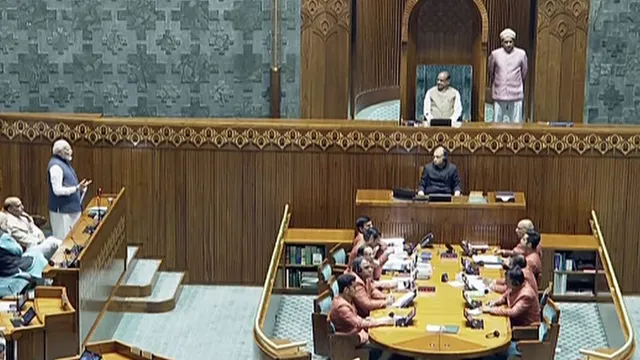- By Abhishek Sheoran
- Thu, 27 Feb 2025 11:38 AM (IST)
- Source:JND
The Supreme Court is hearing a Public Interest Litigation (PIL) seeking a lifetime ban on politicians convicted in multiple cases. Amid intense arguments between the government counsel and the top court on the matter, it has emerged that 251 of the 543 MPs elected to the 18th Lok Sabha face criminal charges. This represents 46 per cent of the total lawmakers in the lower house of Parliament.
Of the 251 MPs facing charges, 27 MPs have been convicted by various courts. According to the report of the Association for Democratic Reforms (ADR), this is the highest number of tainted MPs recorded so far. In 2019, 233 MPs, or 44 per cent, who had criminal cases, were elected to the Lok Sabha.
ALSO READ: UP To See Wet Start To March As IMD Issues Rain Alert In 35 Districts From Feb 28-March 1 | Forecast
In fact, 39 per cent of the ministers in the Modi government are also tainted. These MPs face various criminal charges.
The number of tainted MPs has increased by 55 per cent since 2009. In 2009, 30 per cent of MPs were tainted, while in 2014 it was 34 per cent, 43 per cent in 2019, and in 2024, it has risen to 46 per cent.
The Centre had on Wednesday vehemently opposed a plea seeking a lifetime ban on politicians convicted in criminal cases, asserting that the move would be ‘harsh’.
The government argued that the matter was under the domain of legislative policy and the courts cannot direct parliament in this regard.
"By confining the operation of the penalty to an appropriate length of time, deterrence is ensured while undue harshness is avoided," the Live Law stated the Centre as saying.
"The prayer of the Petitioner amounts to re-writing of the statute or directing the Parliament to frame a law in a particular manner which is wholly beyond the powers of judicial review. It is trite law that the Courts cannot direct Parliament to make a law or to legislate in a particular way," it added.
Two weeks ago, a bench comprising Justices Dipankar Datta and Manmohan asked the Union Government to address the issue, emphasising that the criminalisation of politics was a serious concern. The judges also pointed out a potential conflict of interest, as politicians themselves are responsible for drafting the laws.

